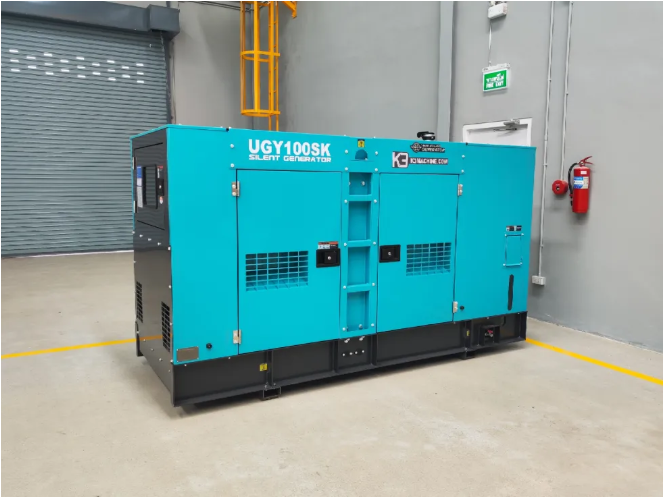
AC Generators and Emergency Power: Why They’re Essential for Backup Electricity During Natural Disasters
Natural disasters can strike without warning, leaving devastation in their wake, including widespread power outages. In these situations, having a reliable source of backup electricity is crucial for safety, security, and maintaining essential services. AC generators, or alternating current generators, are a vital component of emergency power systems, providing the electricity needed to keep homes, businesses, and critical infrastructure running when the grid goes down.
Note: Curious about how electric generators can power your projects efficiently? Discover in-depth insights and expert tips at k3machine เครื่องปั่นไฟ. Dive into our comprehensive resources and learn everything you need to know about electric generators today!
In this article, we will explore why AC generators are essential for backup electricity during natural disasters, highlighting their importance in ensuring resilience and preparedness.
The Role of AC Generators in Emergency Power Systems
AC generators are devices that convert mechanical energy into electrical energy in the form of alternating current (AC). This type of electricity is the standard for most household and industrial applications because of its efficiency in transmission and compatibility with a wide range of electrical devices. When natural disasters cause power outages, AC generators step in to provide the necessary electricity to keep vital systems operational.
Why AC Generators Are Essential During Natural Disasters
1. **Reliable Backup Power**
One of the primary reasons AC generators are essential during natural disasters is their ability to provide reliable backup power. When the main power grid is compromised due to storms, earthquakes, floods, or other disasters, AC generators automatically kick in to supply electricity. This ensures that essential services, such as lighting, heating, cooling, and refrigeration, continue to function, even in the most challenging conditions.
For homes, this means keeping the lights on, powering medical devices, and maintaining communication channels. For businesses, especially those in critical industries like healthcare, data centers, and emergency services, AC generators are the lifeline that keeps operations running smoothly, preventing catastrophic losses and ensuring continuity.
2. **Supporting Critical Infrastructure**
During natural disasters, the uninterrupted operation of critical infrastructure is paramount. Hospitals, fire stations, police departments, and emergency response centers all rely on continuous power to perform their functions. AC generators are installed in these facilities to provide immediate backup power in the event of a grid failure.
In hospitals, for example, AC generators power life-saving equipment, surgical lights, and HVAC systems, ensuring patient safety and care continuity. For emergency services, AC generators keep communication systems, dispatch centers, and rescue equipment operational, enabling a coordinated response to the disaster.
3. **Maintaining Communication Systems**
Communication is crucial during a natural disaster. AC generators play a vital role in maintaining the functionality of communication infrastructure, including cell towers, emergency broadcast systems, and internet services. By ensuring these systems remain operational, AC generators help keep people informed, allow them to stay in touch with loved ones, and enable emergency services to coordinate their response effectively.
Without backup power from AC generators, communication networks could fail, leaving communities isolated and unable to access vital information or request help.
4. **Protecting Perishable Goods and Medical Supplies**
Power outages during natural disasters can lead to the spoilage of perishable goods and the loss of critical medical supplies. Refrigerators and freezers in homes, supermarkets, and pharmacies rely on a continuous power supply to keep food, medicines, and vaccines at safe temperatures. AC generators provide the backup power needed to prevent spoilage, ensuring that essential supplies remain intact and accessible.
For businesses, particularly those in the food industry or healthcare sector, this can mean the difference between saving or losing thousands of dollars in perishable inventory. More importantly, it ensures that communities continue to have access to necessary food and medical supplies during emergencies.
Choosing the Right AC Generator for Emergency Power
When selecting an AC generator for emergency power, there are several factors to consider to ensure it meets your specific needs during a natural disaster:
1. **Power Output and Capacity**
The power output and capacity of the AC generator are critical factors. You’ll need to determine the total wattage of the appliances and systems you plan to power during an outage. For residential use, this might include lights, refrigerators, sump pumps, and medical equipment. For businesses, the requirements will be higher, depending on the size and nature of the operations.
Choosing a generator with a capacity slightly above your calculated needs ensures you have enough power to handle unexpected loads or additional devices.
2. **Fuel Type**
AC generators can run on various fuels, including gasoline, diesel, natural gas, and propane. Each fuel type has its advantages and considerations:
– **Gasoline:** Readily available but less efficient for long-term use.
– **Diesel:** More fuel-efficient and durable, ideal for larger generators.
– **Natural Gas:** Continuous fuel supply through pipelines, reducing the need for refueling.
– **Propane:** Long shelf life and cleaner burning, but requires larger storage tanks.
Consider the availability of fuel during a disaster and choose a generator that best suits your situation.
3. **Automatic vs. Manual Start**
For emergency power, an automatic start feature is highly recommended. Standby AC generators with automatic start capabilities will detect a power outage and begin generating electricity within seconds, without any user intervention. This is crucial for ensuring immediate power restoration, especially in critical applications.
Manual start generators are less expensive but require someone to be present to start the generator, which may not always be practical during a disaster.
4. **Noise Level**
Noise level is an important consideration, especially for residential areas. Some AC generators can be quite loud, which can be disruptive during prolonged use. Look for generators with noise reduction features or consider installing the generator in a location that minimizes noise impact.
5. **Maintenance and Durability**
Regular maintenance is essential for ensuring that your AC generator will perform reliably when needed. Choose a generator that is known for its durability and ease of maintenance. It’s also advisable to schedule regular checks and servicing, especially before the disaster season, to ensure the generator is in optimal working condition.
Conclusion: The Critical Role of AC Generators in Disaster Preparedness
AC generators are an essential component of any disaster preparedness plan. Their ability to provide reliable backup electricity during natural disasters ensures that homes, businesses, and critical infrastructure can continue to operate in the face of adversity. Whether it’s keeping the lights on, powering medical equipment, or maintaining communication systems, AC generators are indispensable in safeguarding lives and livelihoods during emergencies.
For those looking to enhance their disaster preparedness, investing in a high-quality AC generator is a wise decision. To explore our range of reliable and efficient AC generators, visit [k3machine.co.th](https://k3machine.co.th). Our expert team is ready to help you select the perfect generator to ensure you have dependable electricity when it matters most.



